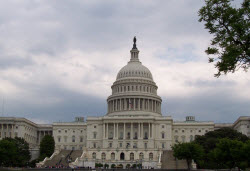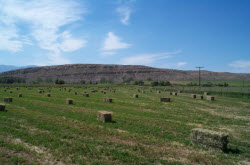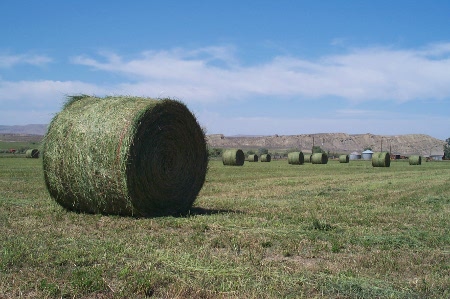Conventional and organic farmers and environmental groups filed a lawsuit challenging the USDA’s decision to permit the unrestricted commercial release of genetically engineered alfalfa.
|
|
|||
|
The usual and unusual politics surrounding the deregulation of genetically engineered alfalfa. Yesterday, USDA’s Sec. Tom Vilsack announced that genetically engineered alfalfa, that has been modified to withstand repeated application of Monsanto’s RoundUp herbicide, will be completely deregulated nation-wide, without any restrictions. Last week, superweeds and GMOs were on the minds of many U.S. lawmakers. Reports continued on growing pesticide resistance. Bee colony collapse problem grows. EPA considers giving environmental justice a chance. EU approved more GM maize imports, while a GMO-Free Europe conference nears. And more. A coalition of agriculture groups and 75 Members of Congress wrote to Tom Vilsack, urging the USDA to allow limited planting of Roundup Ready alfalfa while the agency completes an Environmental Impact Statement. Ever since the Supreme Court handed down its mixed 7-1 decision, ruling that the lower court overstepped its boundary by issuing an injunction on the planting of genetically modified alfalfa, some lawmakers were spurred to action. The United States Supreme Court handed down its first ever decision concerning genetically modified crops and it is a mixed result for farmers, consumers and environmental groups. We review and provide legal analysis of the oral argument in the Monsanto v Geertson matter heard recently by the Supreme Court. Monsanto claims that it is pursuing a legal battle over the right to grow genetically modified alfalfa because it is concerned with farmers, fairness and choice. Yet Monsanto’s appeals in the case have a lot more to do with protecting its right to continue selling GM seeds and pesticides. Today, the U.S. Supreme Court is hearing oral arguments in the case of Monsanto v. Geertson Seed Farms. At stake is a decision issued by California District Court which issued a permanent injunction against any further planting of genetically engineered alfalfa crop in 2007. In December 2009, the USDA has released its draft environmental impact statement proposing to deregulate Monsanto’s genetically engineered alfalfa. GMO Journal submitted its public comment to the agency urging it to continue regulating GE alfalfa. There is still time to take action before the March 3, 2010 deadline. Do you part — tell USDA to reject Monsanto’s GE alfalfa. As a result of policies enumerated by the Coordinated Framework, regulatory control over GMOs in the United States was divided among different regulatory agencies. The consequences of such a decision was a myopic, and at times, haphazard regulatory control by each agency over GMOs. For USDA, this raises significant questions as to the agency’s ability to effectively regulate second generation GMOs. According to a story published recently in the St. Louis Post-Dispatch, “Monsanto Co. asked the U.S. Supreme Court to review a lower court’s decision to ban the planting of genetically modified alfalfa until an environmental review is complete.” |
|||
|
 |
|||










